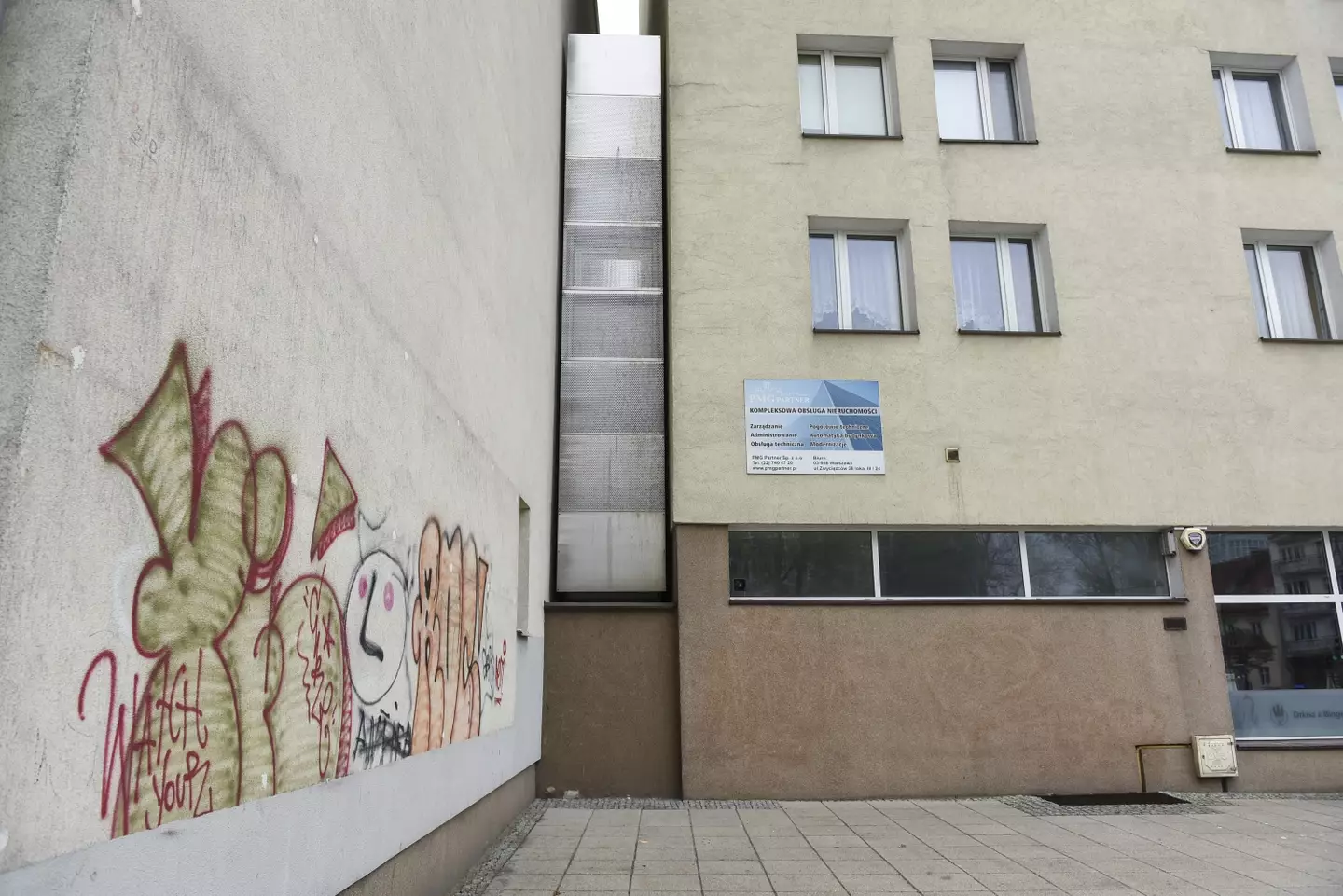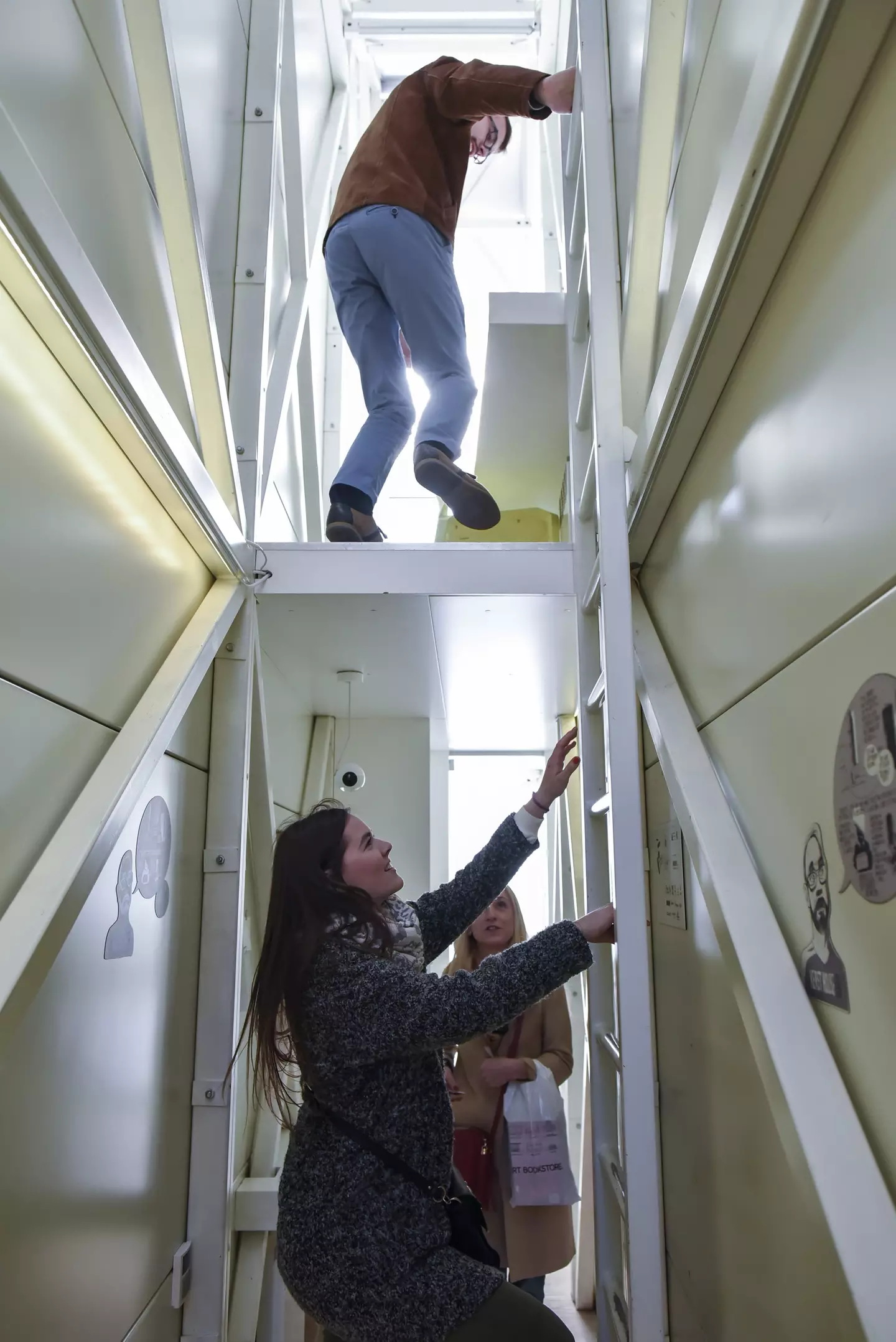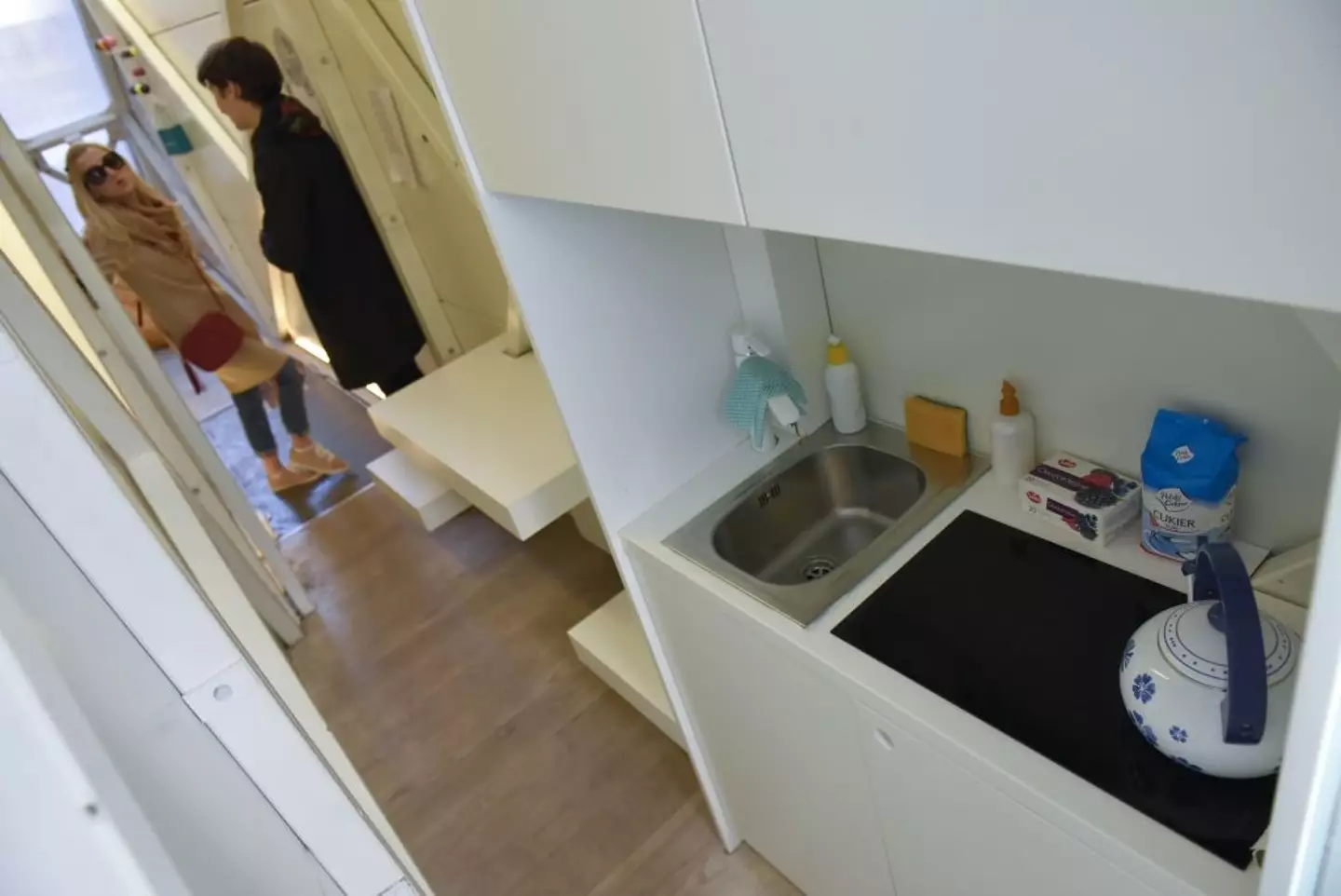.png)
Here is what your day-to-day life would look like if you lived in the ‘world’s thinnest house’.
Thanks to the increasing demand to live in cities – coupled with a crushing rise in the cost of living – many of us are having to get used to making concessions when it comes to our living situations, whether this be converting a downstairs room into a bedroom or forfeiting the luxury of a garden.
But have you ever wondered what it would be like to live in a house which is just 3ft wide at its slimmest point?

Can you spot the house in this picture? (Omar Marques/Anadolu Agency/Getty Images)
The history of the ‘world’s thinnest house’
Located in the Polish capital of Warsaw, Keret House has earned the title of the ‘skinniest free-standing’ house, even earning a spot in the Guinness World Records.
Measuring at 152 centimetres (4.99 ft) at its widest point, the building is a brilliant (or dystopian) use of available urban space by architect Jakub Szczesny and intended to be a place for travelling creatives to rest their heads, rather than be anybody’s permanent abode.
The house is named after writer Etgar Keret, who was involved in the house’s creation and went on to be the first person to stay there. Keret would later refer to the dwelling as a ‘memorial to my family’ as members from both of his parents’ families were killed during the Holocaust.
Spread over three floors, the house features a single bed squeezed under a window, as well as a kitchen, bathroom and tiny dining area, as well as a ‘living area’ which is comprised of a single beanbag. The house is raised off the ground, with the entrance being a ladder up to the first floor.
Cosy or claustrophobic? You decide.

Keret House was designated as an art installation to get around local building codes (Omar Marques/Anadolu Agency/Getty Images)

Cosy or claustrophobic? (Omar Marques/Anadolu Agency/Getty Images)
Keret house is so tiny that Szczesny officially registered the place as an ‘art installation’ in order to get around building codes in the city. Which likely means that no one can live there for an extended period of time.
Reflecting on how the house came to be during an interview with Dezeen back in 2012, Szczesny explained that he conceived the idea after seeing the gap between the two buildings and wondering ‘who could live there’.
“It started with the space,” Szczesny explained.
“I started to think who could live there,” he continued. “It had to be a person that would like to be a hermit, someone who would like to spend time alone doing something, but doing what?”
However anyone looking to visit the house in person or even stay the night should prepare to be disappointed as it doesn’t appear to be open to the pubic at the moment.
Featured Image Credit: Omar Marques/Anadolu Agency/Getty Images
Topics: Lifestyle, Community, Weird, World News




